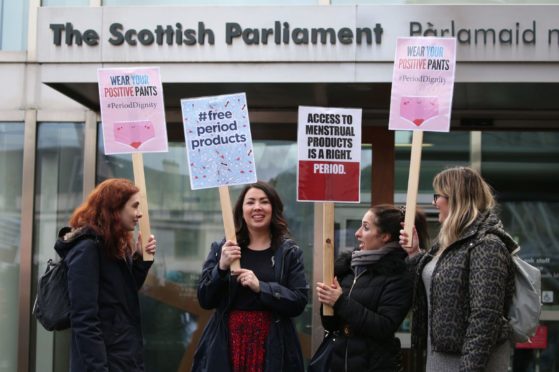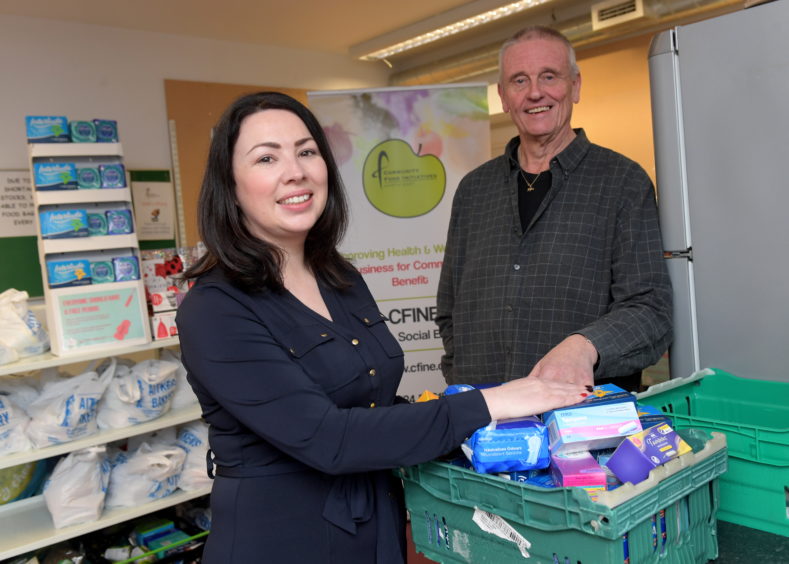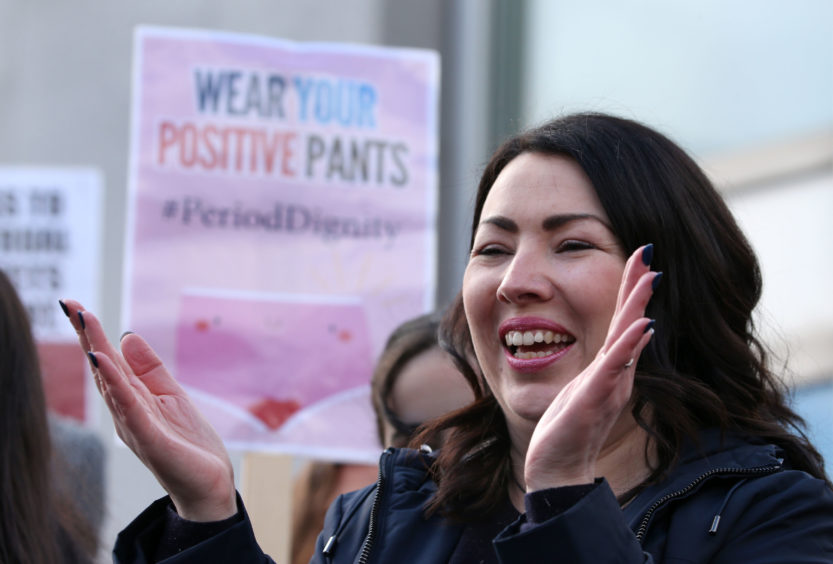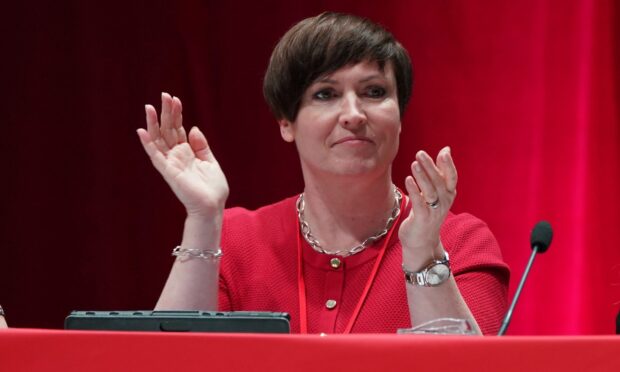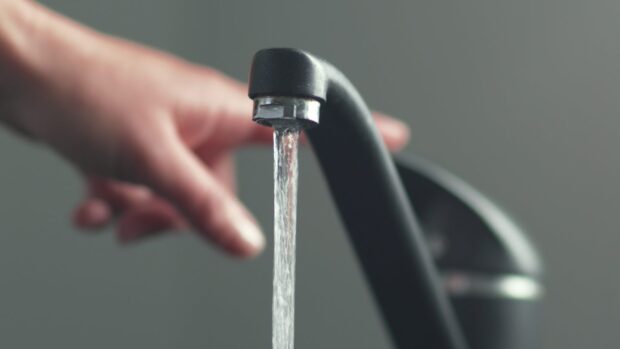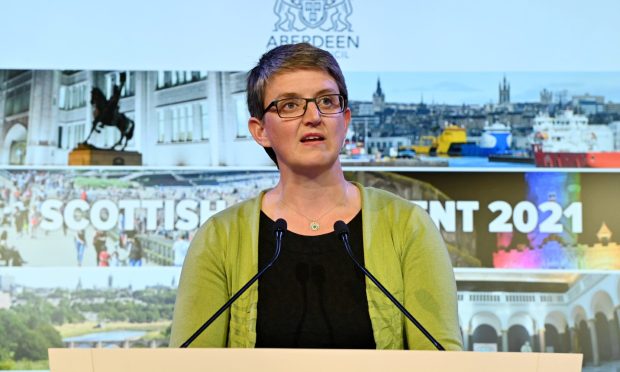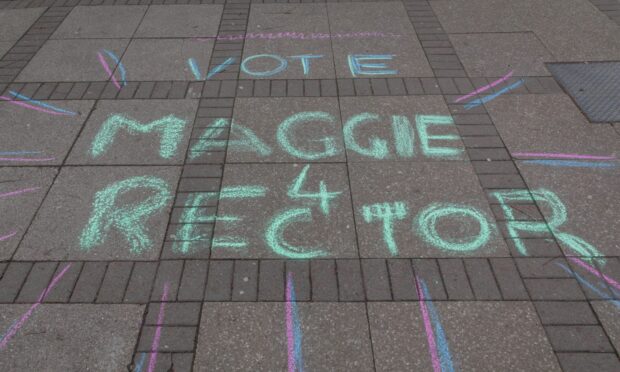A move to make period products freely accessible in Scotland could become law by the end of the year, according to the politician behind the bill.
Scottish Labour MSP Monica Lennon, who has pursued the issue since entering parliament in 2016, is “optimistic” of getting the bill enshrined in law by the end of 2020.
MSPs voted in favour of approving the general principles of the bill at its first stage last week, with Ms Lennon having already started working with opposition colleagues on possible amendments before it progresses to stage two.
Ms Lennon said: “The bill has just passed one which is fantastic.
“That means the bill can proceed to the next level, so we don’t yet have a date, but it will go back to committee where a number of amendments can be looked at.
“I’m hoping if that work concludes fairly promptly we could see stage 3 before the end of 2020.
“I’m optimistic that we’ll see a change to the law by the end of the year and that’s what I’m working towards.”
The proposed legislation would introduce a legal right of access to free products such as tampons and sanitary pads on a universal basis.
Although Ms Lennon did manage to gain the support of colleagues to get the bill through its first stage, opposition politicians had expressed concerns around the predicted costs and design of the scheme.
But the Scottish Labour politician said she is up for the challenge, adding: “Other MSPs have told me bringing a members bill through the parliament is quite challenging especially when when you don’t have absolute buy-in from the Scottish Government straight away.
“It’s always been quite ambitious to take the legislation forward but it’s really significant that the bill got unanimous support last week.
“I’m not taking anything for granted and we need to make sure that any genuinely held concerns are addressed.”
Too often we see it across the UK, but also the world, where women’s rights are challenged and in times of austerity women’s services are often the first to get cut.
Ms Lennon had originally estimated the bill would cost £9.7 million a year, based on information provided from the Scottish Government.
The Scottish Government estimated the annual bill would be substantially higher at £24 million.
But the politician behind the bill is confident that the costs behind the scheme can “come down”, adding that the methodology for her estimate is “robust” and based on pilot schemes elsewhere, including Aberdeen.
The Scottish Government has already provided £5.2 million to provide tampons, pads and some reusable products in schools, colleges and universities.
But Ms Lennon said while there is great work already under way in Scotland, it is important that providing period products for free is enshrined in law.
She added: “For me, it’s always been about having legal rights to access the products because initiatives and pilots can come and go but they have to be sustained.
“Too often we see it across the UK, but also the world, where women’s rights are challenged and in times of austerity women’s services are often the first to get cut.
“For me there’s always been a clear vision that this should be a legal right and why shouldn’t Scotland be the first to do it?
“None of us know what will happen at the Scottish election next year so it’s about making sure we lock in that progress and we do make a stand for gender equality.
“The reaction across the world has told us something. People have been so complimentary about what we are doing in Scotland and to pass this legislation.
“At a time when there’s much going on in our politics at a UK level and across the world and the really big challenges we face, then it does feel good that we’ve done something really groundbreaking.”
Endometriosis
The bill has been supported by an array of charities, including Endometriosis UK, who support some of the 1.5 million women in the UK suffering from the chronic pelvic condition.
Endometriosis is a condition where tissue similar to the lining of the womb starts to grow in other places, such as the ovaries and fallopian tubes.
Ms Lennon said the condition is quite common, affecting one in 10 women, and can make periods “very difficult and challenging”.
She added: “The bill is about making products more accessible generally but it could benefit those who have hidden conditions like endometriosis.”
More from our special series
- Endometriosis: Introducing our special investigation into the debilitating health condition affecting 1.5 million women
- “I was on the verge of suicide” — Endometriosis sufferers share the emotional and physical pain of their condition
- Endometriosis understanding is poor and awareness is lacking, says leading researcher
- Health boards and Scottish Government admit endometriosis patients are waiting too long to be seen
- Politicians pledge their support for new Westminster inquiry into endometriosis
- Campaigners report rise in women seeking help and advice after our special series on chronic condition
- COMMENT: Studying endometriosis has left me shocked and saddened — but determined to see women receive the treatments they deserve
The Scottish Labour politician is supporting an evening reception on Tuesday in the Scottish Parliament on behalf of charity, Endometriosis UK.
Last month the UK Government opened an inquiry the investigate the challenges faced by endometriosis sufferers and we revealed our own study in which we examined the harsh realities of those living with the condition.
Do you live in #Scotland and want to learn more about #endometriosis? @MonicaLennon7 is hosting a reception tomorrow evening in the Scottish Parliament.
If you'd like to come along, RSVP to communications@endometriosis-uk.org.
— Endometriosis UK (@EndometriosisUK) March 2, 2020
Ms Lennon believes the first step has to be ensuring GPs are upskilled as too often women are being “brushed off”.
She said: “Women are not really believed when they present with the symptoms.
“So many women are coming forward to speak about their experience so we need our health professions
“It’s another hidden condition that affects women that doesn’t get the political attention it deserves.”
